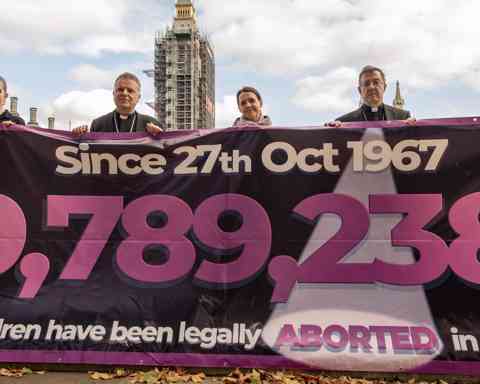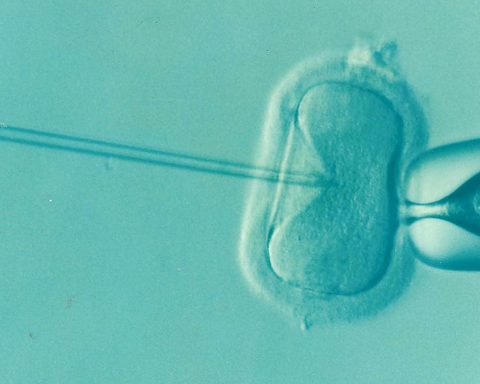Bioethics in Brief: Cooperation with Evil
Bioethics In Brief – Cooperation With Evil‘Cooperation in evil’ often means assisting or facilitating the wrongdoing of others, either intentionally or as a side-effect of our action. The same idea is implied by the term ‘complicity’. These terms can also be used to include endorsing past or current wrongful choices of other people.
Some also use the term ‘cooperation in evil’ to cover situations where we benefit from past wrongdoing of other people, whether or not we endorse that wrongdoing. Others prefer to describe this by a related term: ‘appropriation of evil’.
Not all forms of cooperation in evil are morally the same. While some forms are never justified, other forms are morally acceptable or even morally required: cooperation may be unavoidable in daily life. We live in a network of relationships and duties, and it is impossible to escape all connection to evil, however unintentional and remote, insofar as we are human beings with roles in the world. Distinguishing between different kinds of cooperation can help us assess the acceptability of an action that we find to be connected to wrongdoing at some level.
Starting with formal cooperation in evil, this occurs where we share the wrongful intention of some other person. Note that it is not necessary for the other person to judge that what they are doing is wrong for our cooperation to count as formal. What matters is that they intend to do what is in fact wrong – that is a wrongful intention – and that the cooperator shares that wrongful plan. This form of cooperation is never justified.
To establish whether I am sharing someone else’s wrongful plan, it helps to ask myself, ‘What am I trying to do?’ It is not just about what I ultimately hope to achieve, but about the means I use to achieve that goal. A midwife assisting in an abortion may say to herself, ‘I am merely passing instruments to the doctor; my intention is to keep my job’. However, she has only mentioned two of her intentions: the intention to pass instruments and the intention to keep her job. She is leaving out the intention, however reluctantly formed, to enable the doctor to do the abortion. She is passing the right instruments at the right time in order for this to happen. This is sharing in another person’s intention to do evil, i.e. formal cooperation, and must be avoided absolutely just as intending to do evil must always be avoided.
Avoiding formal cooperation includes avoiding even conditional intentions to assist in some wrongful act. For example, someone may agree to provide a referral for abortion if the pregnant woman first comes for counselling. This could be done with the aim that supportive counselling would help the woman see there are alternatives to abortion, such that she would not seek the referral. The counsellor may hope that the referral is not needed. However, the offer of such a referral, even conditionally, shares the intention of procuring the abortion should that be the will of the pregnant woman.
As a general rule, a professional can make a client aware of sources of information without intending that the person will use these. In the same way a doctor might mention that a patient is always free to seek a second opinion from some other doctor. On the other hand, an ‘effective referral’ where this means finding a doctor who is both able and willing to offer the procedure, is formal cooperation with the person seeking to be referred. An effective referral for an abortion co-operates with the intention of the person looking to procure an abortion.
Thus, formal cooperation – sharing in another’s wrongful intention – can take a variety of different forms. Our actions may deliberately provide physical assistance, or our words may be intended to encourage a wrongful intention. Formal cooperation cannot be excused by a further intention for some good to come out of the evil we share in. A good end does not justify an evil means (Romans 3:8). Our whole manner of acting and thinking must be ordered towards the good, and we cannot dispense with respect for ourselves or others along the way to achieve some other good outcome.
There are times when we do not share in someone’s intention to do wrong, but our action still facilitates or assists with the wrongdoing at some level. Quite often we will even foresee, with reasonable certainty, that our action will have the effect of co-operating with the wrongdoing. Such cooperation is called material cooperation.
Given the web of connections in which we all live, material cooperation in evil is extremely varied. The taxes we pay, for example, might be used to fund unjust wars or weapons of mass destruction or unethical scientific experiments. A bus driver can reasonably foresee that some passengers will use public transport to do good, and others to do evil. Someone may supply medical equipment to a large hospital, knowing that the same instruments will be used in both legitimate procedures and immoral ones.
Read the Bioethics in Brief entry on Principle of Double Effect.
Unlike formal cooperation, which necessarily involves some level of wrongful intention, material cooperation is sometimes justified. We have to consider factors such as the goods and the harms at stake, how ‘close’ we are to the wrongdoing, and any bad messages we might send out that may encourage others to participate in the wrongdoing (which is termed ‘scandal’). The greater the contribution of actions to the wrongdoing, or the more serious the scandal, the less reason we will have to cooperate materially. There must be a sufficient reason to justify material cooperation.
‘Closeness’ to wrongdoing is not simply a matter of physical proximity; it is more about closeness in terms of process. A supplier of arms to a government habitually engaged in unjust wars is close in process, even if they operate from a different part of the world. Such a supplier may only be materially cooperating with unjust wars and their preparation; after all, the government buying arms may also be channelling such arms towards legitimate self-defence purposes. However, the closeness of the cooperation, the record of the government’s wrongdoing in this area, the gravity of the harm involved and the bad messages sent out would likely be enough for such cooperation to be unjustified. On the other hand, the arms manufacturer may buy components which also have civilian use and are sold through third parties, and the manufacturer will also need raw materials: metals, ceramics, plastics and of course power. It may be very difficult for people supplying such components or materials to avoid remote cooperation.
Consider a different example. Someone whose job it is to clean, as part of general hospital cleaning, an operating theatre where many abortions are performed need not be sharing in the intention of those performing the abortions. Granted, such cleaning helps facilitate the evil of abortion, in that without it, the abortions could not take place. However, the act of cleaning the theatre, say, every night has its own intelligibility – good hygiene and infection-prevention for anyone present – and is separate enough from the act of abortion to be considered material cooperation.
Is such material cooperation justified? From the little information above it is hard to be absolutely conclusive. In general, someone aware of the evil of abortion would wish to avoid such a job for reasons of closeness to evil and scandal. However, it may be that the cleaner’s livelihood is at stake as there are no other options for work available at present. To refuse such material cooperation would result in huge harm to the cleaner and his family, and such material cooperation may be justified for the time being, until better options for work become available. (Note: even if the material cooperation were justified in the individual case there may still remain a duty to find other work if possible. Practical proximity to evil is a threat to one’s moral character and may well suggest to others one’s support of the evil.)
The point with these cases is that various goods have to be weighed in the balance prudentially and in order to do that we need as much information as possible about the particular situation and the people involved.
Not all of us will be faced with such difficult cases. A lot of material cooperation is remote and it is in fact impossible to live in the world, fulfil our vocations and do good without some level of material cooperation in evil. This can be seen even more clearly when one considers the appropriation of evil, often included under the term ‘cooperation in evil’.
Appropriation of evil is using a past wrong to benefit ourselves or another person. For example, we might buy or sell something that was likely stolen originally, such as an antique taken from a grave that was robbed many centuries ago. Closer to home, we might buy a mobile phone with a lithium-ion battery that contains cobalt probably originating in the exploitation of child labour in mines in the Congo. Or we might take a vaccine tested on a cell-line descended from cells originally taken 50 years ago from the tissue of an aborted child. If we in no way endorse the original wrongdoing in these cases, then there is no formal sharing of the intention: it is material appropriation. That still leaves the question of whether such appropriation is morally justified.
Again, when assessing these situations, we need to look at how closely connected we are to the original evil. We must also think about the goods involved such as life and health and what is demanded by our own individual roles and situations. We must consider whether the evil is only in the past or whether it is ongoing or might be repeated. This may increase the danger of giving scandal or appearing to minimise the reality of certain past evils. In short, unlike formal cooperation, material cooperation with evil and appropriation of evil are not wrong in all circumstances; rather when they are wrong and when they are right is a matter for prudential judgement which applies objective moral norms (rules and principles), inclusive of Church teaching, to one’s particular situation.
Most recent
Bioethics in Brief: The Status of the Human Embryo
16 April 2022
Our ‘Bioethics in Brief’ on the Status of the Human Embryo.
Bioethics in Brief: IVF and Artificial Insemination
16 April 2022
Our ‘Bioethics in Brief’ on IVF and Artificial Insemination.
Support Us
The Anscombe Bioethics Centre is supported by the Catholic Church in England and Wales, Scotland, and Ireland, but has also always relied on donations from generous individuals, friends and benefactors.



